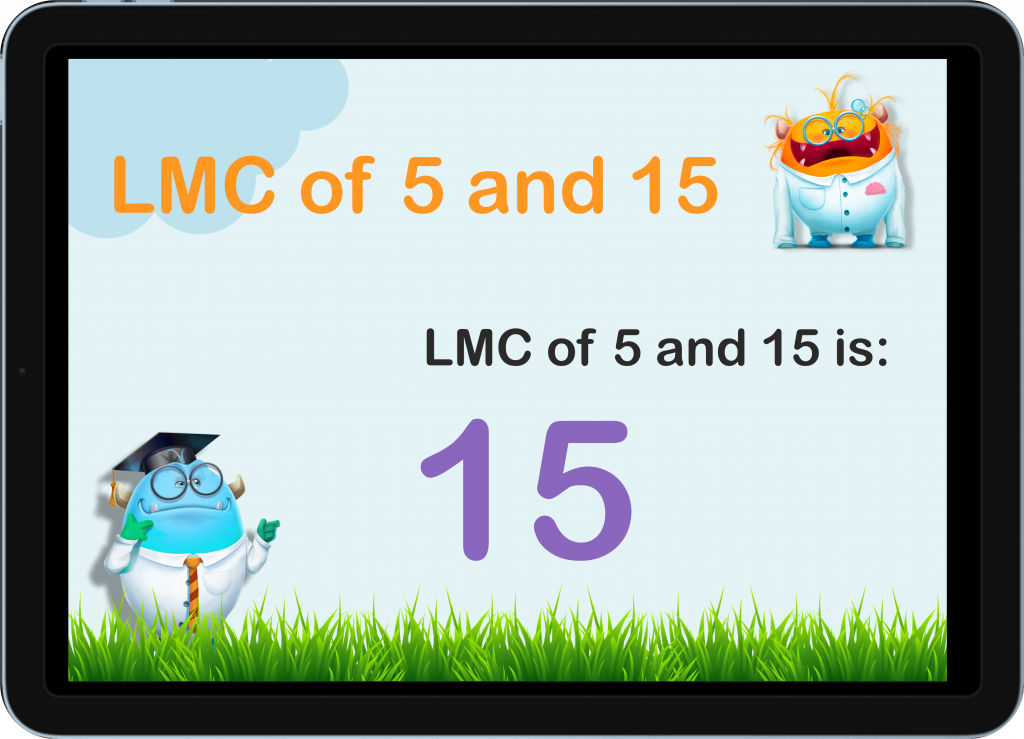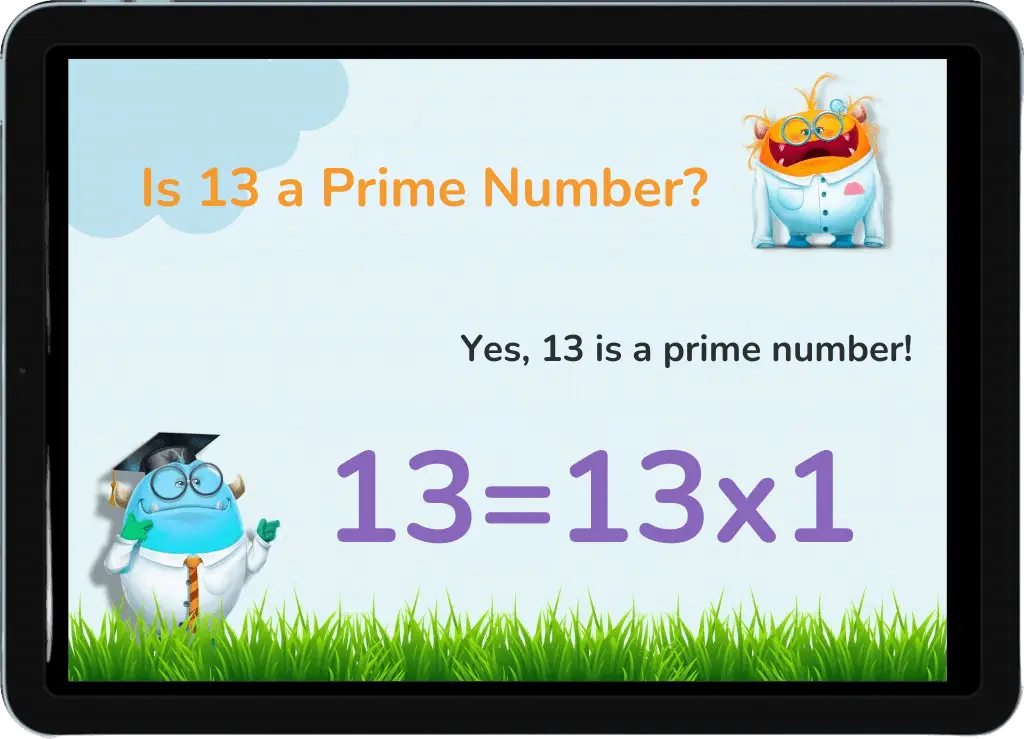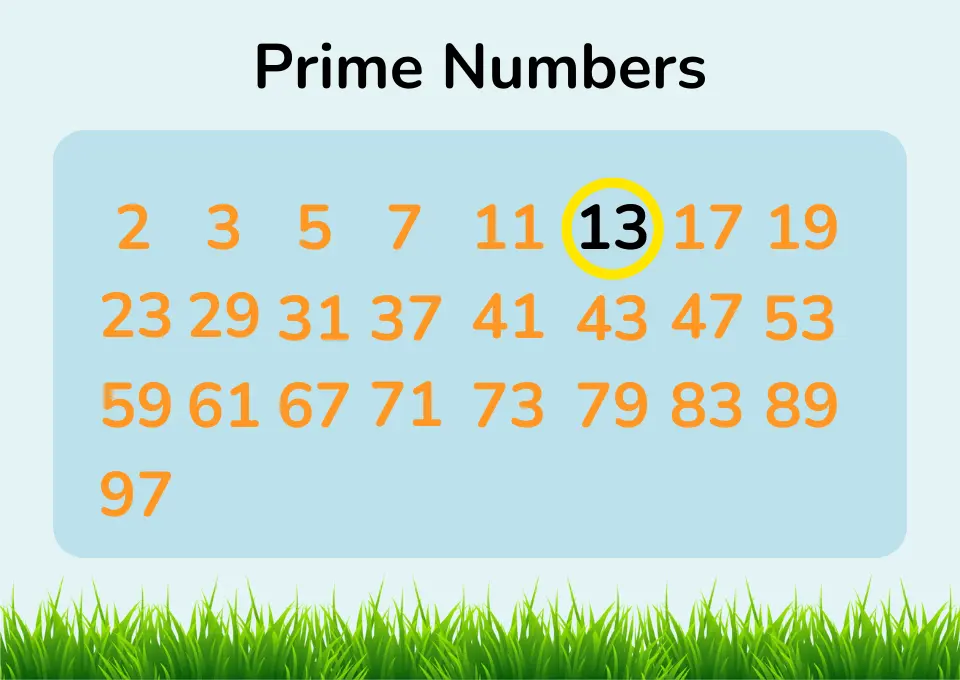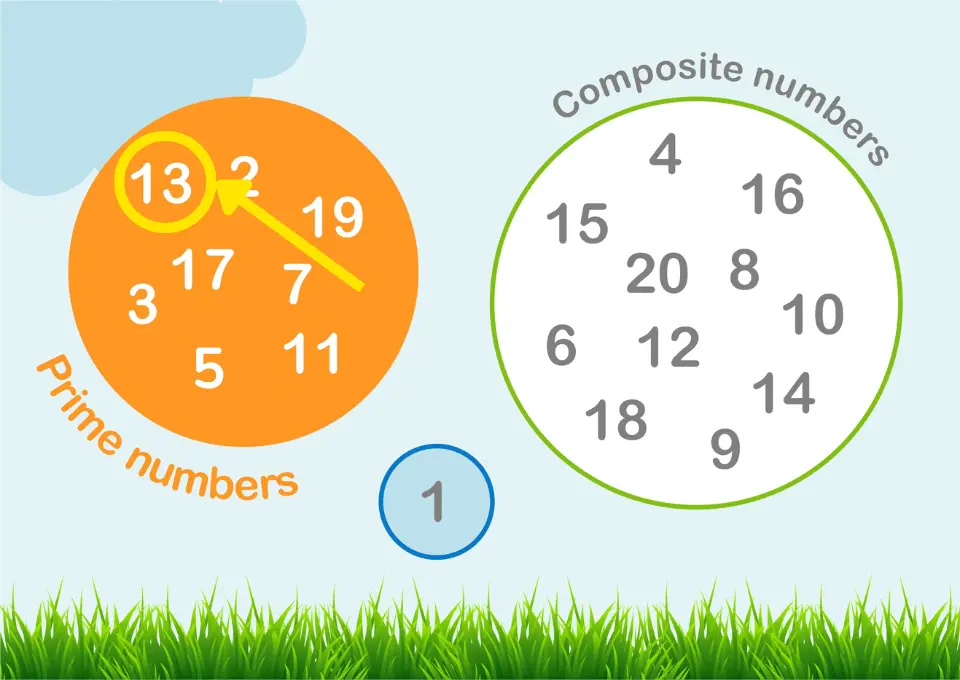Is 2 A Prime Number?
Prime vs. Composite Numbers
Greetings, young math enthusiasts! Today, let’s set sail on a mathematical voyage to determine if 2 is a prime number, and learn more about the difference between prime and composite numbers.

Is 13 a Prime Number?
Or Is 13 a Composite Number?
Have you ever been fascinated by the mysteries within numbers? We have! The number 13 is one of mathematics’ unique gems, special and captivating. Today, we’re diving into the intriguing world of 13. Ready for this fun adventure?


No credit card required

No credit card required
What are Prime Numbers?
Is 13 a Prime Number?
Double-check if 13 is a Prime Number
Why is 13 a Special Prime Number?
Fun Facts About 13 as a Prime Number
Is 13 a Twin Prime?
Is 13 a Cousin Prime?
Is 13 a Sexy Prime?
Is 13 a Composite Number?
What are Prime Numbers?
Prime numbers are like the superheroes of mathematics! They can only be divided by 1 and themselves, meaning no other numbers can fit in. For instance, 2, 3, and 5 are all prime numbers. They stand alone, making them fascinating and unique!
Is 13 a Prime Number?

Yes, 13 is a prime number. It can only be evenly divided by 1 and itself, with no other divisors. This means 13 qualifies as a prime number because it has no other divisors besides 1 and 13.
Double-checking if 13 is a Prime Number
To verify that 13 is indeed a prime number, we must ensure it cannot be evenly divided by any number other than 1 and itself. Here’s the process:
- Is 13 divisible by 2? No, because 13 is an odd number and cannot be divided by 2.
- Is 13 divisible by 3? Adding the digits of 13 (1 + 3) gives 4, which is not divisible by 3.
- Is 13 divisible by 5? No, because it doesn’t end in 0 or 5.
Since 13 isn’t divisible by 2, 3, or 5, and there are no other smaller numbers to check, we can confidently say that 13 can only be divided by 1 and itself. Congratulations, 13, you are a prime number!
Let’s Dig Deeper!
Now, let’s further confirm this. We’ve already checked the smaller numbers, but there’s a method called “trial division.” This technique involves dividing 13 by all prime numbers less than its square root. The square root of 13 is approximately 3.6, so we only need to check the primes 2 and 3.
13 ÷ 2 = 6.5 (not a whole number)
13 ÷ 3 = 4.33 (not a whole number)
Since neither of these divisions result in whole numbers, it confirms that 13 is indeed a prime number.
Why is 13 a Special Prime Number?
The number 13 holds a special place in various aspects of life and culture, beyond just being a prime number.
From its frequent appearance in traditions and superstitions to its unique mathematical properties, 13 is truly captivating. Let’s explore some fascinating fun facts about this remarkable number.
Unlucky Number
In many cultures, 13 is considered an unlucky number. Despite its mathematical uniqueness, it often carries a superstitious reputation.
A Baker’s Dozen
A baker’s dozen consists of 13 items. This term originated from the practice of bakers adding an extra item to ensure they met the required weight of a dozen.
Lunar Year
There are roughly 13 full moons in a year. At least there is when it comes to international fixed calendar that splits a year in 13 months where each month has 28 days.
This ties 13 to the lunar calendar, influencing various cultural and religious practices.
Tarot Card
In tarot, the 13th card is Death, symbolizing transformation and change rather than literal death. It signifies the end of one phase and the beginning of another.
Mathematics
The number 13 is the sixth prime number and has various interesting properties in number theory. It is also part of the Fibonacci sequence, where each number is the sum of the two preceding ones (8 + 5 = 13).
Fun Facts About 7 as a Prime Number
Fibonacci Prime
13 is a Fibonacci prime, meaning it is a prime number that appears in the Fibonacci sequence. This adds to its uniqueness and mathematical intrigue.
Lucky Prime
Despite 13’s reputation for bad luck, it is considered a lucky prime. These primes are derived from a sieve similar to the Sieve of Eratosthenes.
Leyland Prime
13 is a Leyland prime of the form x^y + y^x, showcasing its mathematical elegance.
Wilson Prime
13 is a Wilson prime, which satisfies Wilson’s theorem for primes. This theorem states that a prime number ppp will divide (p−1)!+1(p-1)! + 1(p−1)!+1.
Is 13 a Twin Prime Number?
Yes, 13 is a twin prime number. Twin primes are pairs of prime numbers that differ by exactly 2. In this case, 13 pairs with 11, another prime number, making them a twin prime pair.
Is 13 a Cousin Prime Number?
Yes, 13 is a cousin prime number. Cousin primes are pairs of prime numbers that differ by exactly 4. In this case, 13 pairs with 17, as 17 – 13 = 4, making them a cousin prime pair.
Oh wait, there’s more. 13 has another cousin, it’s prime number 9. It’s a double cousing prime!
Is 13 a Sexy Prime Number?
Yes, 13 is a sexy prime. Sexy primes are pairs of prime numbers that differ by exactly 6. In this case, 13 pairs with 7, as 13 – 7 = 6, making them a sexy prime pair.
Again, there’s more. Did you know that 13 is double sexy prime? 19 is a number larger than 13 by the amount of 6.
Is 13 a Composite Number?

Conclusion
Smartick offers fantastic free courses that make learning about prime numbers and more fun and engaging. With interactive lessons and games, Smartick turns math into a playful adventure.
You’ll enjoy each session as you explore new mathematical concepts in an exciting way.
Why wait? Try Smartick and discover the joy of math!
Learn More About Prime Numbers
© 2024 Smartick. All Rights Reserved.
